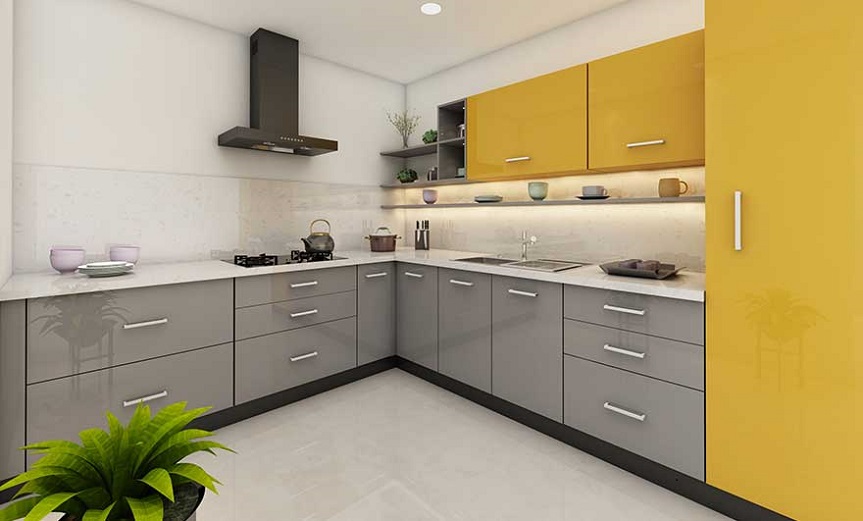Introduction to the Kitchen
The kitchen https://limberbutt2016.com/ is the heart of every home, where families gather to prepare meals, share stories, and create memories. Throughout history, kitchens have evolved from simple hearths to elaborate culinary spaces equipped with the latest technology. Understanding the significance of the kitchen in daily life is essential for designing a space that is both functional and inviting.
Designing Your Dream Kitchen
Designing your dream kitchen involves careful consideration of various factors, including layout, functionality, and aesthetics. Whether you prefer a traditional, contemporary, or minimalist style, it’s essential to choose a design that reflects your personal taste and meets your practical needs. Popular kitchen layouts include the galley, L-shaped, and open-concept designs, each offering its unique advantages in terms of space utilization and workflow.
Essential Kitchen Appliances
Modern kitchens are equipped with an array of appliances designed to simplify cooking and food preparation. From refrigerators and ovens to dishwashers and microwaves, these appliances play a crucial role in streamlining household tasks and enhancing efficiency. When selecting kitchen appliances, consider energy-efficient options that not only save money on utility bills but also reduce your environmental footprint.
Organizing Your Kitchen Space
An organized kitchen is essential for efficient meal preparation and enjoyable cooking experiences. Maximize storage space by utilizing cabinets, shelves, and pantry organizers to keep cookware, utensils, and ingredients neatly arranged. Regular decluttering and cleaning routines are key to maintaining a tidy and hygienic kitchen environment.
Cooking Essentials: Tools and Utensils
Every cook requires a set of essential tools and utensils to create delicious meals with ease. Basic kitchen essentials include knives, cutting boards, measuring cups, and mixing bowls, while specialty utensils such as pasta makers and sushi mats cater to specific culinary interests. Investing in high-quality cooking equipment ensures better results and greater enjoyment in the kitchen.
The Heart of the Kitchen: Cooking Techniques
Mastering basic cooking techniques is fundamental for aspiring chefs and home cooks alike. From sautéing and roasting to braising and baking, understanding the principles behind different cooking methods empowers individuals to experiment with flavors and textures. Advanced techniques such as sous vide cooking and molecular gastronomy offer endless possibilities for culinary creativity.
Embracing Kitchen Technology
The integration of technology into the kitchen has revolutionized the way we cook and eat. Smart kitchen gadgets such as Wi-Fi-enabled ovens, voice-activated assistants, and app-controlled appliances provide convenience and efficiency in meal preparation. Embracing technology not only saves time but also enhances the cooking experience by offering innovative features and functionalities.
Creating Delicious and Healthy Meals
Preparing nutritious and flavorful meals is essential for maintaining a healthy lifestyle and satisfying culinary cravings. Meal planning allows you to make the most of your kitchen resources and minimize food waste while ensuring a balanced diet. Explore a variety of recipes and cooking techniques to discover new flavors and textures that delight your taste buds.
Kitchen Safety Measures
Safety should always be a top priority in the kitchen to prevent accidents and injuries. Practice proper handling and storage of kitchen equipment and ingredients to minimize the risk of mishaps. Keep knives sharp, use cutting boards to protect countertops, and avoid overcrowding stovetops to prevent burns and fires. By following basic safety guidelines, you can create a safe and secure cooking environment for yourself and your loved ones.
Sustainability in the Kitchen
Reducing food waste and adopting eco-friendly practices are essential steps towards creating a more sustainable kitchen. Plan meals thoughtfully to minimize leftovers, store perishable items properly to prolong freshness, and compost food scraps to reduce landfill waste. Choosing energy-efficient appliances and opting for reusable kitchen products further contributes to environmental conservation efforts.
Personalizing Your Kitchen Space
Adding personal touches to your kitchen decor transforms it into a reflection of your unique style and personality. Incorporate decorative elements such as artwork, plants, and textiles to infuse warmth and character into the space. Whether you prefer a cozy farmhouse aesthetic or a sleek modern design, infusing your kitchen with personal touches creates a welcoming atmosphere for cooking and gathering.
Entertaining in the Kitchen
The kitchen is not only a space for cooking but also a hub for socializing and entertaining guests. Whether hosting intimate dinner parties or lively gatherings, ensure your kitchen is equipped to handle the demands of entertaining. Create designated areas for food preparation and serving, and consider incorporating seating options such as bar stools or banquettes to accommodate guests comfortably.
Kitchen Renovation Tips
Renovating your kitchen is an exciting opportunity to refresh the space and enhance its functionality. Consider factors such as budget, timeline, and scope of work when planning your renovation project. Explore budget-friendly options such as refacing cabinets or updating hardware to achieve a fresh look without breaking the bank. Determine whether DIY projects are feasible or if hiring professionals is necessary to ensure quality results.
The Future of Kitchens
As technology continues to advance, the future of kitchens holds endless possibilities for innovation and creativity. From interactive cooking surfaces to 3D food printers, emerging trends promise to revolutionize the way we cook and eat. Predictions for the future include customizable meal solutions, personalized nutrition plans, and sustainable food production methods that prioritize health and environmental consciousness.
Conclusion
The kitchen is more than just a place to prepare meals; it’s a space for creativity, connection, and nourishment. By designing a functional and inviting kitchen environment, you can

